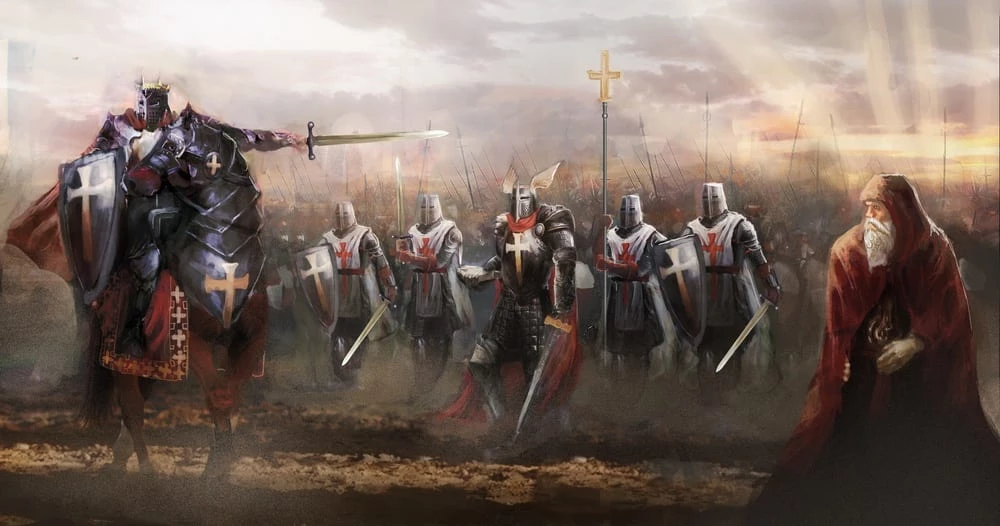The Siege of Ascalon, which took place in 1153, is a critical episode in the complex and tumultuous history of the Crusades. This military campaign, situated in the coastal city of Ascalon (modern-day Ashkelon, Israel), was part of the ongoing struggle between the Christian Crusader states and the Muslim forces of the region.
The Crusades

Background:
By the middle of the 12th century, the Crusader states in the Levant faced challenges on multiple fronts. Internal divisions, conflicts with Muslim neighbors, and losing key territories had weakened the Crusaders’ position. Moreover, Ascalon, a strategically located coastal city, had repeatedly changed hands between Christian and Muslim forces.
Key Figures:
King Baldwin III of Jerusalem: The young and dynamic Baldwin III, who ascended the throne of Jerusalem in 1143, played a central role in the Siege of Ascalon. Furthermore, his leadership and military acumen would prove crucial.
Nur ad-Din: The Muslim leader Nur ad-Din, who ruled over Aleppo and Damascus, sought to expand his influence and unify Muslim territories. He provided support to the Muslim defenders of Ascalon.
Siege of Ascalon – The Siege:
The Siege of Ascalon unfolded over several months and was marked by a combination of military strategy and political maneuvering:
Initial Assaults: Baldwin III and his Christian forces launched a series of attacks on Ascalon, gradually tightening the noose around the city. The initial assaults faced fierce resistance from the defending Muslim forces.
Diplomatic Efforts: Nur ad-Din, keen to avoid the city’s capture, negotiated with the Crusaders. These diplomatic talks stalled the assault but ultimately failed to reach a peaceful resolution.
Final Assault: With negotiations reaching an impasse, Baldwin III unleashed a final assault on Ascalon. The city’s walls were breached, and intense fighting ensued within its walls.
Outcome:
In short, the Siege of Ascalon concluded with a Christian victory in August 1153. The city, a point of contention for years, fell under Crusader control. Furthermore, the capture of Ascalon was a significant achievement for Baldwin III and the Kingdom of Jerusalem.
Siege of Ascalon – Legacy:
Consolidation of Territory: Lastly, the capture of Ascalon solidified Christian control over a crucial coastal city, enhancing the security of the Crusader states along the Mediterranean.
Continued Conflict: While the Siege of Ascalon was a tactical victory for the Crusaders, it did not bring lasting stability to the region. Moreover, conflicts between Christian and Muslim powers persisted, contributing to the ongoing struggles of the Crusader states.
Baldwin III’s Legacy: King Baldwin III’s military successes and leadership skills during the siege earned him a reputation as one of the most capable Crusader kings in the Levant.
In conclusion, the Siege of Ascalon in 1153 exemplifies the complexities of the Crusades and the ongoing efforts to control strategically important cities in the Holy Land. It was a significant moment in the history of the Crusader era, reflecting the complex interplay of military strategy, diplomacy, and determination in the quest for dominance in the region. For more about the siege, you can read about it on Wikipedia!

